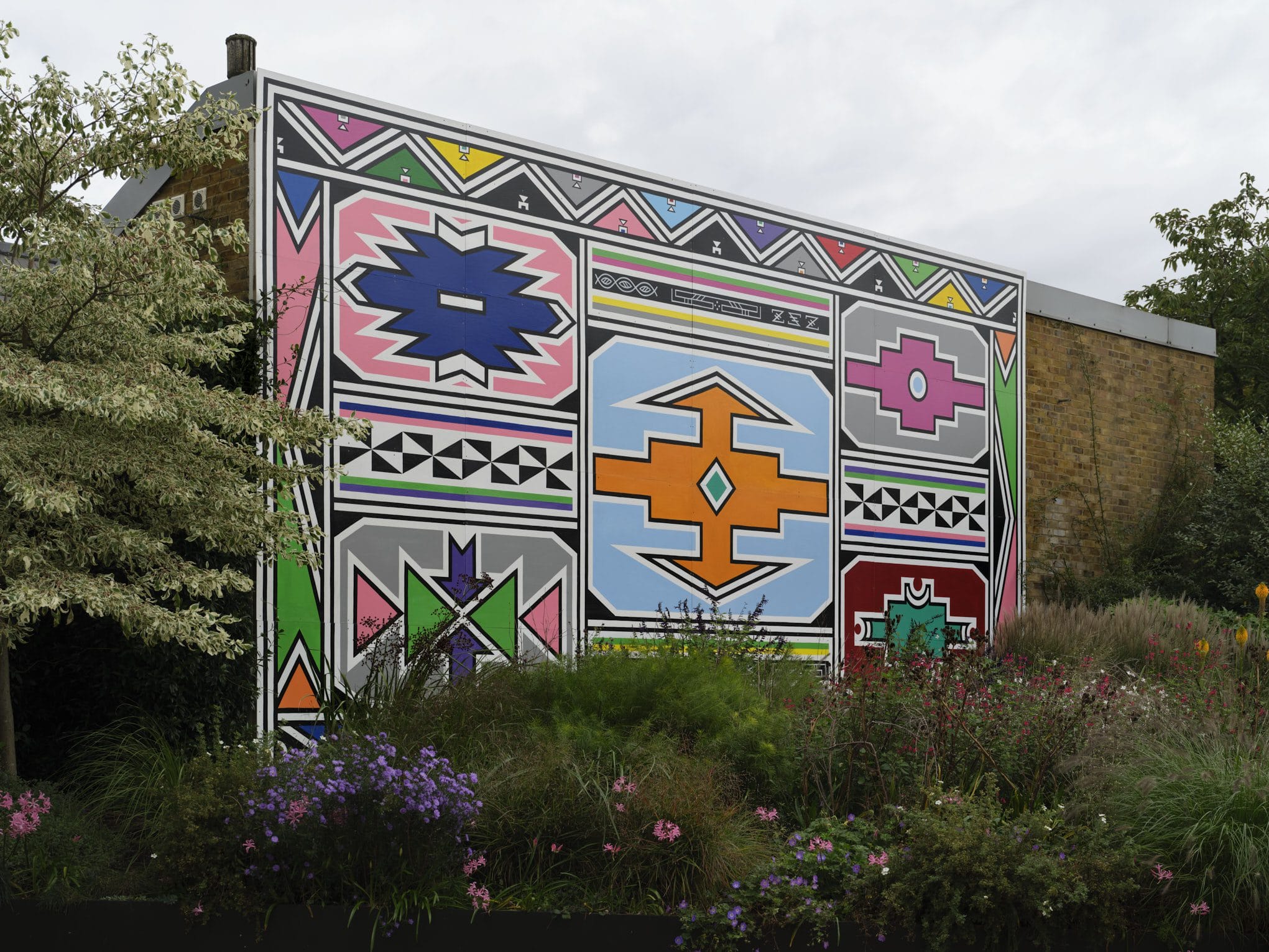
[ad_1]
For more than eight decades, Dr. Esther Mahlangu has been creating large-scale, site-specific works that draw on the artistic traditions of Ndebele culture.
Known for her vibrant, patterned compositions, Mahlangu learned techniques for decorating houses from her mother and grandmother while growing up in South Africa. She mixes natural pigments with clay, soil, and cow dung to paint directly on the exteriors of structures in her village.

Ndebele house painting emerged in the mid-18th century when the matrilineal tribe began to build huts out of mud rather than grass. Women applied colorful patterns to the walls to not only brighten the village but also communicate with others.
The geometric shapes, characterized by bold, black outlines, serve as a visual language to express personal values, prayers, or major life events.
Mahlangu paints by hand without using stencils or masking tape, employing chicken feathers and various brushes to create painstaking geometries that preserve a handmade quality. Over time, she has also created numerous works on canvas, using acrylic to broaden the range of hues in her work.

At Serpentine North in Hyde Park, London, Mahlangu’s first installation the U.K. was unveiled this week on a wall in the gallery’s garden.
Comprising six wooden panels, the monumental mural celebrates unity and community and taps into an Ndebele philosophy: “Umuntu ngumuntu ngabantu,” which translates to: “I am because you are.”
The mural remains on view through September 28, 2025. Plan your visit on the Serpentine website, and learn more about Mahlangu’s remarkable work and career on her website and Instagram.

[ad_2]